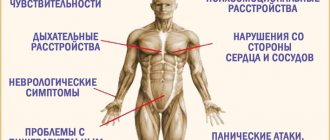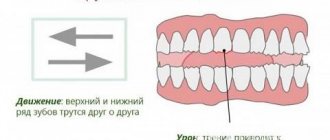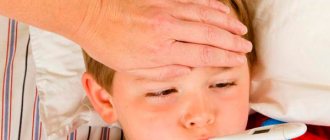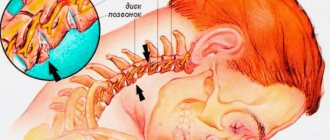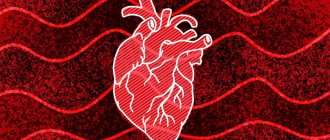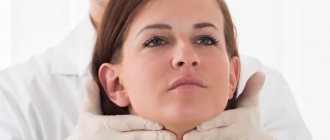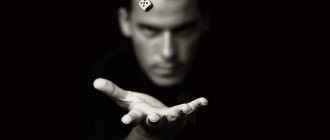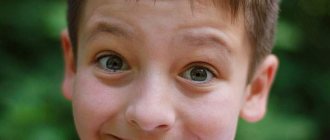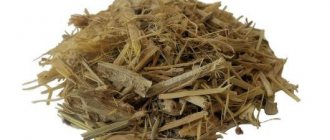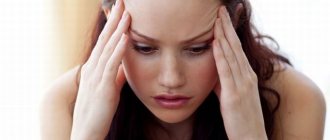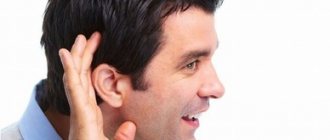Why does insomnia occur after binge drinking?
When a person drinks alcohol, dopamine, the happiness hormone, is released in large quantities in the body. It is this that influences the emotional state: drunk people often fall into a state of euphoria. Ethanol contained in alcoholic beverages also affects the release of adrenaline and norepinephrine, neurotransmitters of the central nervous system. For this reason, the nervous system is excited, including the areas of the brain responsible for sleep.
People who abuse alcohol are constantly in a restless and nervous state. The situation is aggravated by smoking, caffeine and beer abuse in order to feel better. Insomnia after alcohol occurs for the following reasons:
- Poor circulation and vasospasm.
- Under the influence of alcohol, red blood cells cannot retain and transport oxygen molecules, which leads to depletion of the already poor blood flow.
- Deficiency of vitamins and other useful substances that provide cells with energy.
Added to this are the chronic health problems that result from long-term alcohol use.
The symptoms that appear during a hangover - pressure surges, tachycardia, burning in the stomach - also do not contribute to healthy sleep.
Features of this condition
Trying to sleep and being in a state of anxious sleep, a person can even greatly frighten loved ones . The fact is that this condition is accompanied by a number of psychosomatic disorders. The patient sometimes begins to delirium, hallucinate, scream and talk. Then he falls asleep in a short nap and wakes up again in a nightmare.
According to statistics, post-binge insomnia is observed in every 5th case of chronic alcoholism. This condition lasts about 1-2 weeks.
Sleep disturbance after heavy drinking, which occurs over a long period of time, has an extremely negative effect on the central nervous system and brain. This syndrome leads to the development of deep nervous breakdowns and increases the risk of repeated and more severe binge drinking. In the initial stage of development of this situation, the alcoholic faces only minor problems with sleep.
What does long-term insomnia lead to?
By the way, not only strong alcohol, but also low-alcohol drinks such as beer and wine can cause such a problem. The quality of sleep is detrimentally affected by the use of any type of intoxicating drink. The first 3-4 days are the most difficult, then the body gradually restores all organic processes and returns to normal.
Do you need sleep during a hangover?
Sleep is the best means of detoxification, which is especially true after overeating. Drinking alcohol leads to intoxication of the body, which must be combated. During sleep, a person restores processes aimed at improving self-regulation.
It is important to understand that falling asleep alone after drinking is dangerous. It is advisable that the sleeping person be supervised in order to avoid unpleasant consequences:
- Vomit. A drunk person sleeping on his back always runs the risk of choking on his own vomit in his sleep. To prevent this from happening, you need to turn it on its side.
- People with a hangover do not change their body position for a long time in their sleep. For this reason, the limbs go numb, crash syndrome occurs, which in turn leads to poisoning by the decay products of internal tissues and kidney failure.
For these reasons, it is so important to monitor a person sleeping while hungover, not to let him lie on his arm, and to turn him over.
The process of falling asleep
Normal sleep is characterized by a loss of consciousness, relative immobility, and a decreased response to external stimuli. However, this does not mean that the processes in the body also “fall asleep”. Oxygen consumption by the brain periodically increases, and hormones are released. This means that metabolism occurs in the brain.
Read also: How to fall asleep after binge drinking
Among other mechanisms, the autonomic nervous system (ANS) is responsible for the process of falling asleep. The sympathetic part of the autonomic nervous system enhances metabolism, activates the body, and increases excitability. The parasympathetic department restores energy reserves and regulates vital activity during rest. The ANS also regulates the release of hormones and neurotransmitters, one of which is melatonin.
The autonomic nervous system is also involved in memory formation. It ensures the transition of information from short-term to long-term. Normally, processes in the autonomic nervous system ensure harmonious, coordinated functioning of the body. A full, deep sleep that brings rest and vigor is a sign of such harmony. The disruption of its phases is associated with the fact that during heavy drinking one has nightmares.
Types of alcoholic insomnia
Insomnia after binge drinking causes serious inconvenience, many do not know what to do about it. The following types of sleep disorders caused by alcohol are distinguished:
- Absolute insomnia - occurs with prolonged use of alcoholic beverages. In this condition, a person experiences a serious disruption in the nervous system, which leads to confusion and hallucinations. This is very dangerous, such symptoms signal delirium tremens.
- Unstable sleep - a person falls asleep for a short time, but consistently wakes up several times a night from nightmares.
- Chronic insomnia - occurs after heavy drinking and continues for a long time after it. The problem can be solved if you get rid of alcohol addiction.
- Insomnia is a condition characterized by difficulty falling asleep, shallow short sleep, and frequent awakenings. Due to the lack of stable sleep, the body does not restore strength and the nervous system. As a result, in the morning a person feels overwhelmed, dizzy, and joints hurt.
- Psychological insomnia - adults often try to get rid of mental trauma with the help of alcohol, which leads to alcoholism. Only taking medications and comprehensive treatment will help you get rid of this condition.
Reasons for the development of the syndrome
Alcoholism and sleep problems are integral companions of each other. And the culprit is the negative influence of ethanol. When alcohol breaks down in the body, it creates a toxic metabolite - acetaldehyde. Toxic breakdown products provoke severe intoxication of all internal organs and systems of the body, the central nervous system especially suffers.
Alcohol metabolites have an extremely detrimental effect on the processes occurring in the cerebral cortex. Long-term poisoning provokes persistent oxygen starvation of tissues, which causes massive death of neurons. This further aggravates the problem of insomnia .
The main culprits of post-binge problematic sleep are excessive load on the central nervous system and brain caused by severe alcohol intoxication.
The main signs of this disorder include the following symptoms:
- psychoses;
- nightmares;
- frequent awakenings;
- aggressive manifestations;
- the appearance of suicidal thoughts;
- development of a depressive state;
- a feeling of vague anxiety and fear;
- slow and very difficult falling asleep;
- hallucinations of all types (visual, auditory, also tactile).
How to fall asleep and restore sleep after binge drinking at home
I cannot sleep after a binge of 3-4 days - the most common complaint among patients who abuse alcohol. In such situations, narcologists prescribe treatment with medications. Additionally, it is recommended to use traditional medicine as an auxiliary method. Herbal decoctions prepared at home will help you fall asleep quickly after a hangover. To do this take:
- valerian roots;
- motherwort;
- mint or lemon balm.
The herbs are poured with boiling water and left to steep for 2-3 hours. Take warm decoctions before bed, with the addition of honey and lemon for greater effect. It is forbidden to use ready-made herbal tinctures containing alcohol: they will only increase the craving for alcohol.
You can also fall asleep after a binge at home with a warm bath with pine additives. Chamomile flowers, rose hips, wormwood, and tansy work no less effectively. Decoctions of these herbs can be added to water or made into tea.
Folk remedies
Alternative medicine offers a lot of remedies that can relieve prolonged sleep, speed up the body's cleansing of toxins, and relieve emotional stress.
Properly selected and prepared foods calm the nervous system, relieve thirst, headaches and nausea, and have an overall positive effect.
Affordable and proven means to help you sleep after binge drinking:
- infusion of hop cones - pour 50 g of inflorescences with a glass of boiling water, leave for 1 hour, strain. Divide the product into three parts and drink throughout the day before meals;
- tea with mint, motherwort and St. John's wort - take a tablespoon of a mixture of these components mixed in equal quantities. Pour a glass of boiling water, stir, after 3 minutes drink like tea;
- decoction of lingonberry leaves - you can use a pharmaceutical collection, packaged in bags, from which tea is prepared.
A decoction made from lingonberry leaves will help you sleep.
In addition to one of these manipulations or traditional approaches, it is recommended to drink an oat decoction. To prepare it, you need to pour 100 g of the product into 1 liter of water, boil, and keep on low heat for 20 minutes. The product is filtered and taken 200 ml before meals to cleanse the liver.
Can alcohol be used as a sleeping pill?
Human sleep consists of two phases: deep and superficial. They replace each other throughout the night. After drinking alcohol, people fall asleep quickly, and the deep phase becomes longer. For this reason, many people use alcohol in small doses instead of sleeping pills when fighting insomnia.
When alcohol is absorbed by the body and its concentration in the blood decreases, sleep becomes more responsive. The number of phases of superficial sleep is reduced, a person sleeps anxiously, restlessly, and often wakes up. The result is a broken state and lethargy throughout the day.
The second reason why you should avoid drinking alcohol before bed is its diuretic effect. If you often get up and run to the toilet throughout the night, you won’t be able to get enough sleep.
Medications for post-binge insomnia
Finding himself face to face with insomnia, an alcohol dependent person asks the question: how, after a period of heavy drinking, can he finally fall asleep and rest, forgetting about nightmares, visions and constant awakenings?
Read also: Medicine that causes vomiting in an alcoholic during a binge?
The most effective means of allowing the patient to immerse himself in the arms of Morpheus are sedative, vascular and psychotropic medications.
But it is worth remembering that even the most harmless medicine at first glance can cause irreparable harm to an organism weakened by alcohol intoxication if you start taking it without first consulting a narcologist.
The most effective medications for post-binge insomnia are benzodiazepine tranquilizers (Diazepam, Phenozepam, Tranquesipam, Oxazepam and others). These drugs have a pronounced sedative and hypnotic effect and are indicated for patients with increased levels of anxiety. A correctly selected dose of a tranquilizer by a specialist can return a drunkard to sleep in a matter of hours. You won’t be able to buy such drugs at a pharmacy without a prescription, so in this case you can’t do without a narcologist.
If an alcoholic, exhausted by sleepless nights, still refuses to go to the doctor, he can try the well-known Corvalol as a sleeping pill. This heart medicine contains bromizoval and phenobarbital - components that are similar in action to tranquilizers. Before starting to take Corvalol, the patient must read the instructions for the drug, since it, like all other medications, has contraindications. If within 24 hours after starting to use the medicine the patient still cannot fall asleep, he will still need to force himself to visit a narcologist.
Some men and women who experience sleep disturbances after binge drinking try to restore it with the help of herbal sedatives (valerian tablets, Glycine, Persen). But falling asleep after taking these drugs may not occur, since their action is not designed to restore sleep in the post-binge period. In addition, the body, weakened after prolonged alcoholic libations, can react to the herbal components of drugs with an allergic reaction and further aggravate the patient’s condition.
If an alcohol addict lives in a large city, he can ask his relatives to call him an emergency drug treatment team. In order to quickly restore sleep, the doctors who arrived on call will put the patient on a drip. It is enough for a person to take a dip once, and in a matter of minutes he will fall asleep. This rapid action of the drip is explained by the fact that it contains sedatives that have a sedative effect, and blood purifying drugs that effectively remove toxins from the body that have accumulated during the period of heavy drinking. Sometimes sleeping pills, potassium, magnesium, ascorbic acid and B vitamins are added to the drip. The disadvantages of this medical procedure include the high cost (from 2 thousand rubles per drip) and the impossibility of carrying it out in small towns.

